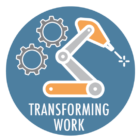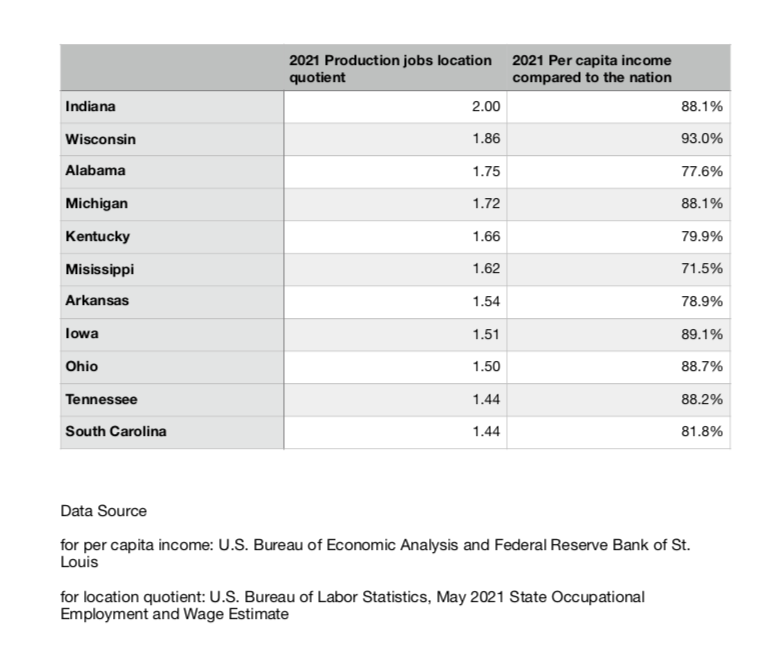
In 2004 Don Grimes and I wrote A New Path to Prosperity?. The report detailed that prosperous states were no longer manufacturing-based states, but were now those over concentrated in knowledge-based industries.
In an accompanying Detroit News op ed, subtitled State should quit protecting factory employment and attract high-pay, high-education industries, we summarized our findings this way:
The evidence strongly suggests that knowledge-based industries are playing the same critical role of producing growth in a post-industrial economy as manufacturing did in the industrial economy. Knowledge-based industries are now the major source of employment growth, particularly of good-paying jobs. And they are the most powerful engine fueling overall economic growth.
One hundred years ago, the state helped lead the nation in transforming to an industrial economy from an agricultural society. Back then, states that lagged in making this transformation became poorer during the ensuing decades.
Is Michigan going to help lead the transformation to a knowledge-based economy, or remain mired in the past? The evidence so far does not look promising.
The public, media and policy makers in our state continue to focus too much on saving an inevitably shrinking number of factory jobs and too little on attracting and growing knowledge-based industries and in preparing, retaining and attracting young knowledge workers.
Knowledge-based industries and young knowledge workers will be the most important driver of future economic growth. Communities with high concentrations of both will become more prosperous, and communities with low concentrations will become poorer compared with their neighbors. It is time for Michigan to get to work on a new agenda––one that will hasten our transition away from the Industrial Age to an increasingly knowledge-driven and entrepreneurial economy.
Unfortunately since that report was written nearly two decades ago Michigan has continued to “focus too much on saving an inevitably shrinking number of factory jobs and too little on attracting and growing knowledge-based industries in preparing, retaining and attracting young knowledge workers.”
And the results are that Michigan has gotten poorer. Now structurally a low-prosperity state. Michigan’s per capita income is now twelve percent below the national average compared to one percent below in 2000.
Michigan is not alone. As the table below details the ten states with the highest production job location quotient––employment concentration in factory jobs compared to the nation––are all structurally low-prosperity states. With per capita income substantially below the national average.

The conclusion in our 2004 op ed is as relevant today as it was then. Knowledge-based industries and young knowledge workers will be the most important driver of future economic growth. Communities with high concentrations of both will become more prosperous, and communities with low concentrations will become poorer compared with their neighbors. It is time for Michigan to get to work on a new agenda––one that will hasten our transition away from a factory-based economy to an increasingly knowledge-driven and entrepreneurial economy.







